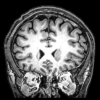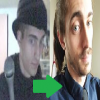Hi,
I am posting this in hopes to receive some help on what steps to take next in regards to the extreme problems supplementing with d aspartic acid has caused me, as it's currently ruining my life.
Around 2 years ago i started (stupidly) using 6 grams of d aspartic acid a day for a boost in the gym, The first week I felt great, but after that i started to get depression, anxiety and sleep problems.
I discontinued use immediately, and decided to wait to see if the problems subsided, they did not. I had to leave full time education and my Job because of the problems the d aspartic acid caused, and have not had a job or returned to education in 2 years( I'm 20 years old now.)
For the first year i had the following symptoms in a very bad way:
.Depression ( suicidal thoughts constantly )
.Anxiety (became very socially awkward because of this, I was very socially adept and confident before )
.Sleep problems(couldn't fall asleep easily, and when i did, the sleep was not very deep and not for very long, when i woke up i was very tired again)
.Brain fog
.Puffy chest, lactating nipples
.Absolutely no libido
.Memory loss, could not retain new information what so ever, and struggled to remember things i already knew
.General mental and physical fatigue
.Weight loss
.General loss of cognitive ability(I felt i was a lot less intelligent, could not contruct a sentence easily)
After a year of enduring these symptoms I finally decided to put all my energy(of which i had very very little) into doing a bit of research, my first avenue of reversing these symptoms was lowering prolactin, as raised prolactin was a side effect of d aspartic acid. I came to the conclusion i had high prolactin because of my puffy chest, lactating nipples and sleep problems. The sleep problems i linked to high prolactin because of experiences i read from people using the steroid trenbolone, they also had sleep problems exactly like mine and Trenbolone also increases prolactin.
I bought myself some cabergoline to lower my prolactin, low and behold the night i took it, my symptoms were improved around 30%. However this stopped working after a week or two, and it seemed by prolactin came crashing back. I knew this wasn't the answer, but after getting a glimpse of hope, i carried on doing a bit of research, i came to the further conclusion that D aspartic acid had damaged my nmda receptors via glutamate excitotoxicty( which can also effect prolactin secretion.)
After googling around i came across a post of someone who suffered from glutamate excitotoxicity (ketamine related) and had used NAC + Piracetam + sarcosine + niacin + vitamin c to reverse it. In desperation and willing to try anything i decided to try any of the supplements mentioned i could find, I supplemented with NAC at first 2g/day, this greatly improved my symptoms, within a week I'd say all symptoms improved 40%, i was so happy. So i decided to add vitamin C at 3g/day into the mix, My symptoms again improved around 30%. I then tried piracetam which strangely is currently making things worse.
From here i don't know where to go, I am not even sure if my conclusion of glutamate excitotoxicity is even correct, the state my brain is in at the moment makes it very hard to understand and learn new things so researching in depth the mechanisms of d aspartic acid to find out what went wrong is very difficult. All i know is something went wrong after taking d aspartic 6g/day for a week, and NAC/Vitamin C have helped greatly but are not helping any further after supplementing with them for months now. Does anyone have any suggestions on what i could try next, or what caused my problems in the first place?
Note: I was not taking any other supplements around the time of taking d aspartic acid.
.





















































